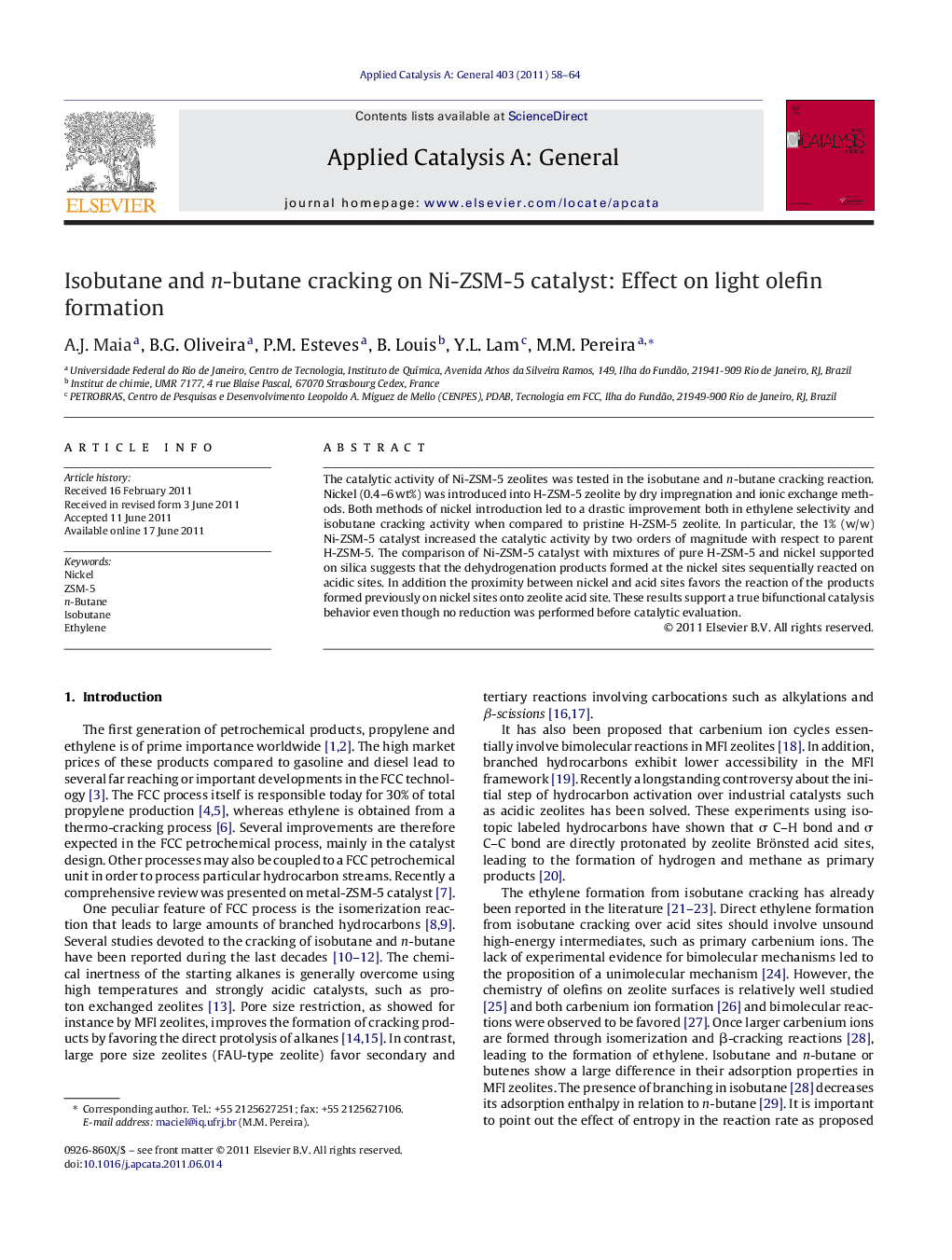| کد مقاله | کد نشریه | سال انتشار | مقاله انگلیسی | نسخه تمام متن |
|---|---|---|---|---|
| 41403 | 45888 | 2011 | 7 صفحه PDF | دانلود رایگان |

The catalytic activity of Ni-ZSM-5 zeolites was tested in the isobutane and n-butane cracking reaction. Nickel (0.4–6 wt%) was introduced into H-ZSM-5 zeolite by dry impregnation and ionic exchange methods. Both methods of nickel introduction led to a drastic improvement both in ethylene selectivity and isobutane cracking activity when compared to pristine H-ZSM-5 zeolite. In particular, the 1% (w/w) Ni-ZSM-5 catalyst increased the catalytic activity by two orders of magnitude with respect to parent H-ZSM-5. The comparison of Ni-ZSM-5 catalyst with mixtures of pure H-ZSM-5 and nickel supported on silica suggests that the dehydrogenation products formed at the nickel sites sequentially reacted on acidic sites. In addition the proximity between nickel and acid sites favors the reaction of the products formed previously on nickel sites onto zeolite acid site. These results support a true bifunctional catalysis behavior even though no reduction was performed before catalytic evaluation.
Addition of nickel to H-ZSM-5 increases remarkably the selectivity to ethylene and the catalysts activity when compared to the pristine H-ZSM-5. The ethylene is produced through β-scissions processes from oligomeric carbenium ions formed during the process.Figure optionsDownload high-quality image (81 K)Download as PowerPoint slideHighlights
► Nickel was introduced into H-ZSM-5 by dry impregnation and ionic exchange methods.
► The Ni-ZSM-5 catalysts show high catalytic activity compared to H-ZSM-5.
► Both methods of nickel introduction largely improve the ethylene selectivity.
► Without previous reduction the Ni-ZSM-5 catalysts show a bifunctional behavior.
Journal: Applied Catalysis A: General - Volume 403, Issues 1–2, 22 August 2011, Pages 58–64